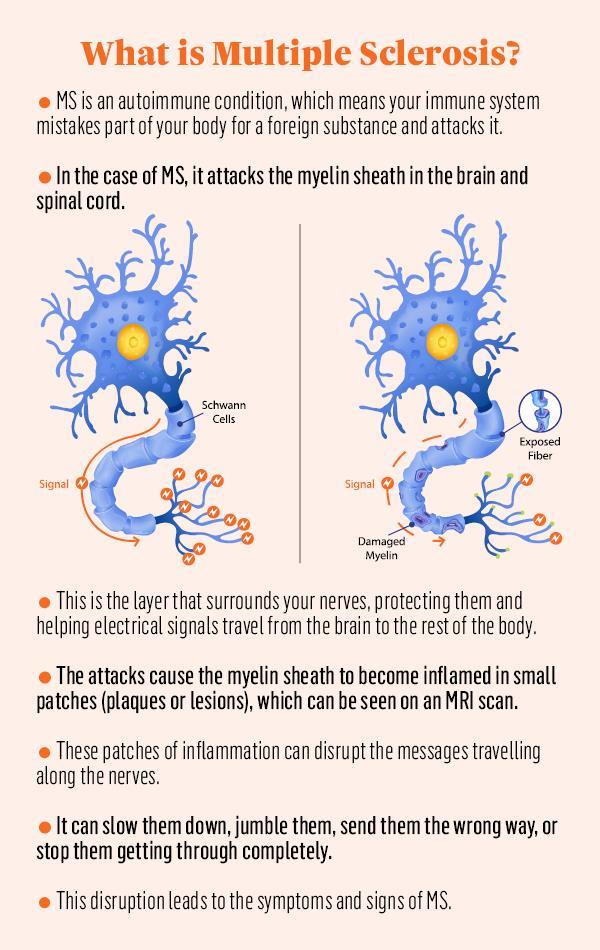As US actress Christina Applegate reveals she has been diagnosed with multiple sclerosis (MS), we look at what the condition is, and what the options for treatment are.
The 49-year-old actress, best known for her role in sitcom Married… With Children, announced on social media that she had been diagnosed a few months ago.
“A few months ago I was diagnosed with MS,” she wrote. “It’s been a strange journey.
“But I have been so supported by people that I know who also have this condition. It’s been a tough road. But as we all know, the road keeps going.”
As one of my friends that has MS said “ we wake up and take the indicated action”. And that’s what I do. So now I ask for privacy. As I go through this thing. Thank you xo
— christina applegate (@1capplegate) August 10, 2021
What is multiple sclerosis?
Multiple sclerosis (MS) is a condition that can affect the brain and spinal cord, causing a wide range of potential symptoms, including problems with vision, arm or leg movement, sensation or balance.
It is a lifelong condition that can sometimes cause serious disability, although it can occasionally be mild.

According to the NHS, MS is commonly diagnosed in people in their 20s and 30s, although it can develop at any age – and is about two to three times more common in women than men.
Symptoms of Multiple Sclerosis
The effects of MS affect people differently and may vary from person to person.

Depending on the type of MS, symptoms may come and go in phases or get steadily worse over time.
MS damages nerves in the body and makes it harder to do everyday things, like walk, talk, eat and think.
What exactly causes MS?
MS is an autoimmune condition. This is when something goes wrong with the immune system and it mistakenly attacks a healthy part of the body – in this case, the brain or spinal cord of the nervous system.
In MS, the immune system attacks the layer that surrounds and protects the nerves called the myelin sheath.
This damages and scars the sheath, and potentially the underlying nerves, meaning that messages travelling along the nerves become slowed or disrupted.
However, it’s unclear what causes the immune system to act in this way, but most experts think a combination of genetic and environmental factors is involved.
What is the treatment for MS?
There’s no cure for MS, but there are different treatments that help people live with this disease.
Medication is given to treat relapses, specific MS-related symptoms and reduce the number of relapses.
Aberdeen has an MS support group for people to connect with others from the community and share experiences.
